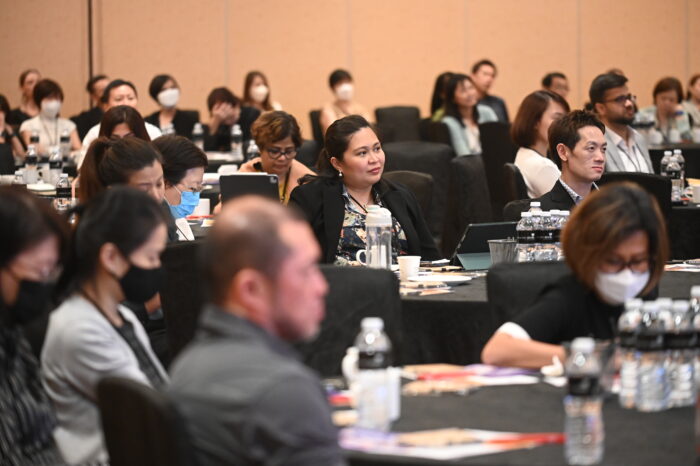Navigating a new world of work in Indonesia

Organised by HRM Asia, CHRO Series Indonesia will explore the latest hybrid work models that can empower leaders to build successful HR teams.
New guidelines established in the Philippines to address WFH concerns

The Department of Labour and Employment has signed an order that more clearly defines WFH workplaces and the work performed by employees.
Most South Korean workers cannot adopt flexible work arrangements

The rollout of flexible working arrangements varied by company size, with a greater number of larger firms offering such arrangements than smaller firms.
70:30 hybrid work model proposed in the Philippines

A 70:30 hybrid work ratio (70% onsite and 30% work-from-home) has been recommended to the government to sustain economic recovery.
The Philippines faces loss of IT talent if WFH scrapped

Employees of IT and business process management (IT-BPM) firms may resign if the government pushes for a return to 100% on-site work.
Redefining the role of HR leadership in reshaping work

More than 170 HR and business leaders discussed topics like modern HR mindsets, flexible work and employee wellbeing at HR Leadership Series: Live.
Employers in India choose ‘3 days a week in office’ schedule

Hybrid working continues to be the most preferred workspace strategy in India, with 63% of the firms currently adopting this practice.
Does WFH hinder creativity and innovation?

Close physical proximity is requited to foster employee relationships that facilitate innovation, according to research from MIT.
Indian firms want staff back in office despite PM Modi’s support for WFH

Employers believe that face-to-face interactions are key to forging bonds between colleagues in the workplace.
2 Cents: Restructuring of work calls for a personalised approach

As work continues to evolve, a one-size-fits-all approach no longer works and organisations must exercise more flexibility to address employee needs.
Amazon’s WFH strategy lets employees stay performance-focused

Amazon’s three-pronged work-from-home strategy places emphasis on how employees work rather than where they are working from.
Internet activity indicates support for remote work

More workers around the world are continuing to use Google to identify remote jobs and understand how remote work functions.
Flexible working arrangements set to stay in South Korea

Some 66.6% of South Korean workers believe that flexible work systems are effective in reducing unnecessary overtime work.
Attracting talent begins with pay transparency in job postings

A Gartner survey revealed that, over the last 12 months, almost 50% of jobseekers did not apply to roles without wages disclosed.
Enabling workplace transformation with the right technology

A HR digital transformation has enabled Air Liquide APAC to successfully navigate the disruptive challenges of hybrid work.
Apple employees reject return-to-office directive

A petition has been launched to advocate for flexible working arrangements to accommodate the varied needs of Apple employees.
Indian employees look for job fulfilment

Around 34% of Indian employees, compared to 19% globally, say they are extremely or very likely to switch to a new employer.
Flexible work arrangements a priority to jobseekers in Singapore

Employees are also looking for jobs that align with their aspirations and lifestyle to create a more meaningful work purpose.
Majority of Australian firms do not mandate office presence

Over half of HR professionals surveyed expected that remote working arrangements would remain unchanged over the next two years.
More Apple employees returning to the office

Beginning September 5, a mandatory three-day work policy will see employees return on Tuesdays, Thursdays, and a regular third day.
Chinese city facilitates return to work for moms

The Zhongshan city government in Guangdong province has introduced a series of incentives to support “working moms” reentering the workforce.
How organisations can succeed in a multi-channel work environment

Tim Sackett, President, HRU Technical Resources, shares how organisations can build a cohesive digital culture in a multi-channel work environment.
India plans to ease WFH rules for special economic zones

This is to sort out differences in opinions of remote work between developers and IT companies in special economic zones (SEZs).
Employers in India support hybrid work arrangements

Nearly 53% of employers prefer hybrid work arrangements for their employees, though the degree of adoption varies from company to company.
WFH a hiring standard in India’s tech sector

Three in four employees in the IT sector refuse to be in the office for even one day a week, citing reasons such as long commutes.
Australia’s public service updates remote working guidance

Amid a COVID-19 spike, public agencies are responsible for setting their own working arrangements and updating them.
Younger and older bosses disagree on remote working practice

Executives closer to retirement age prefer to manage workers when they can see them in person, which differs from managers in their 30s and 40s.
Companies in Australia urged to work remotely

Companies have been urged to allow their employees to work from home and implement mask wearing in the office to combat a new Omicron wave.
What’s ahead for HR leaders in 2023 and beyond?

Organised by HRM Asia, the in-person HR Leadership Series: Live will examine the role HR leaders can play in shaping work in 2023.
India adapts rules for WFH arrangement

Workers who are covered include contractual workers, those who are travelling, temporarily incapacitated, and those who are working offsite.

